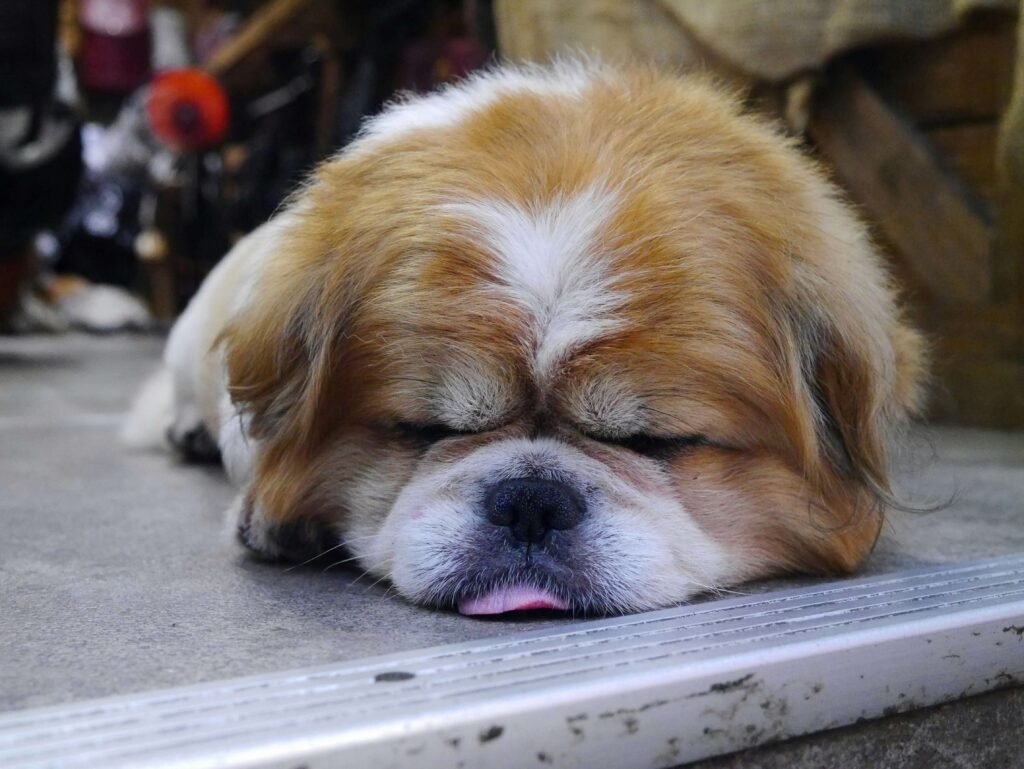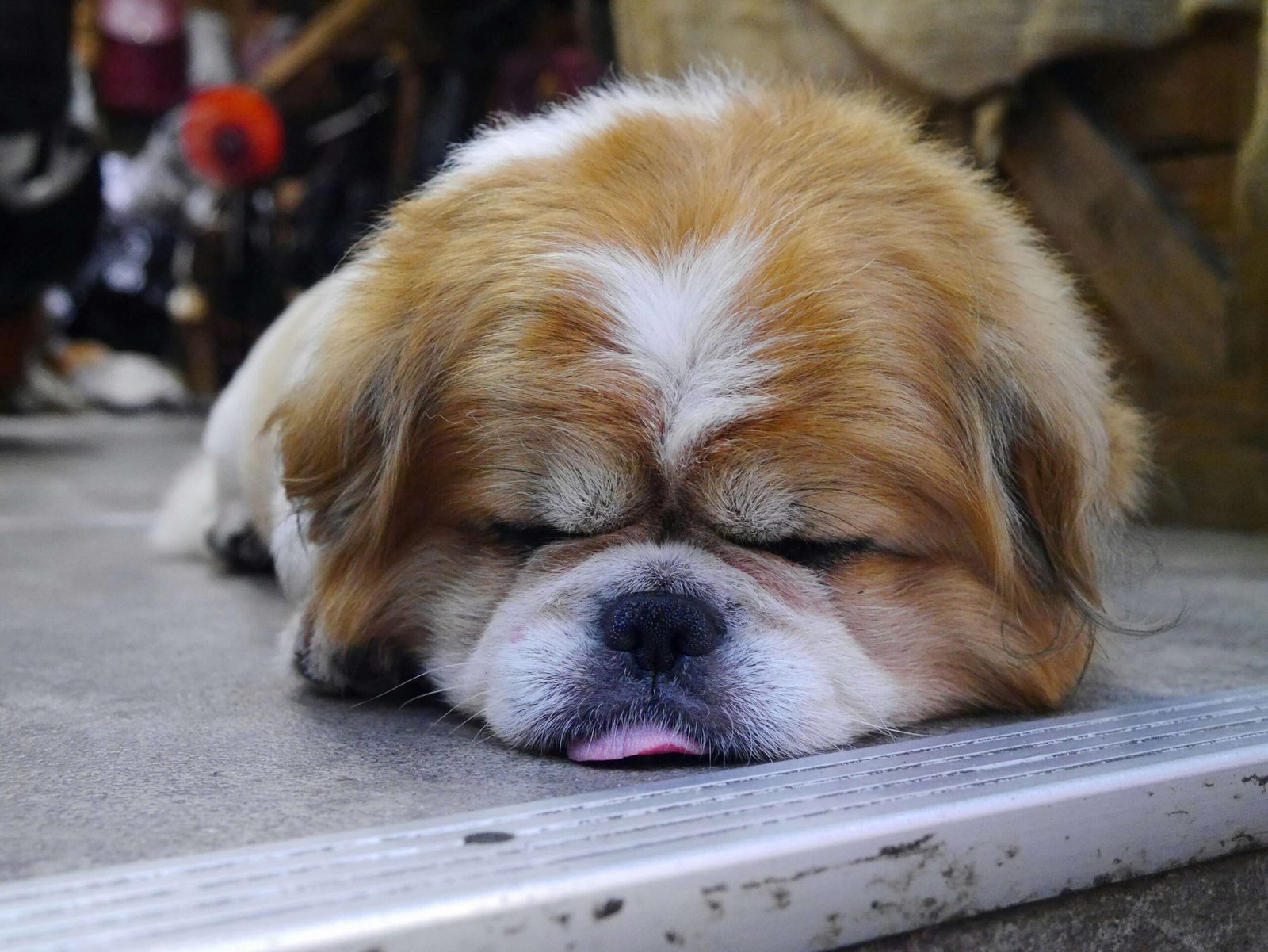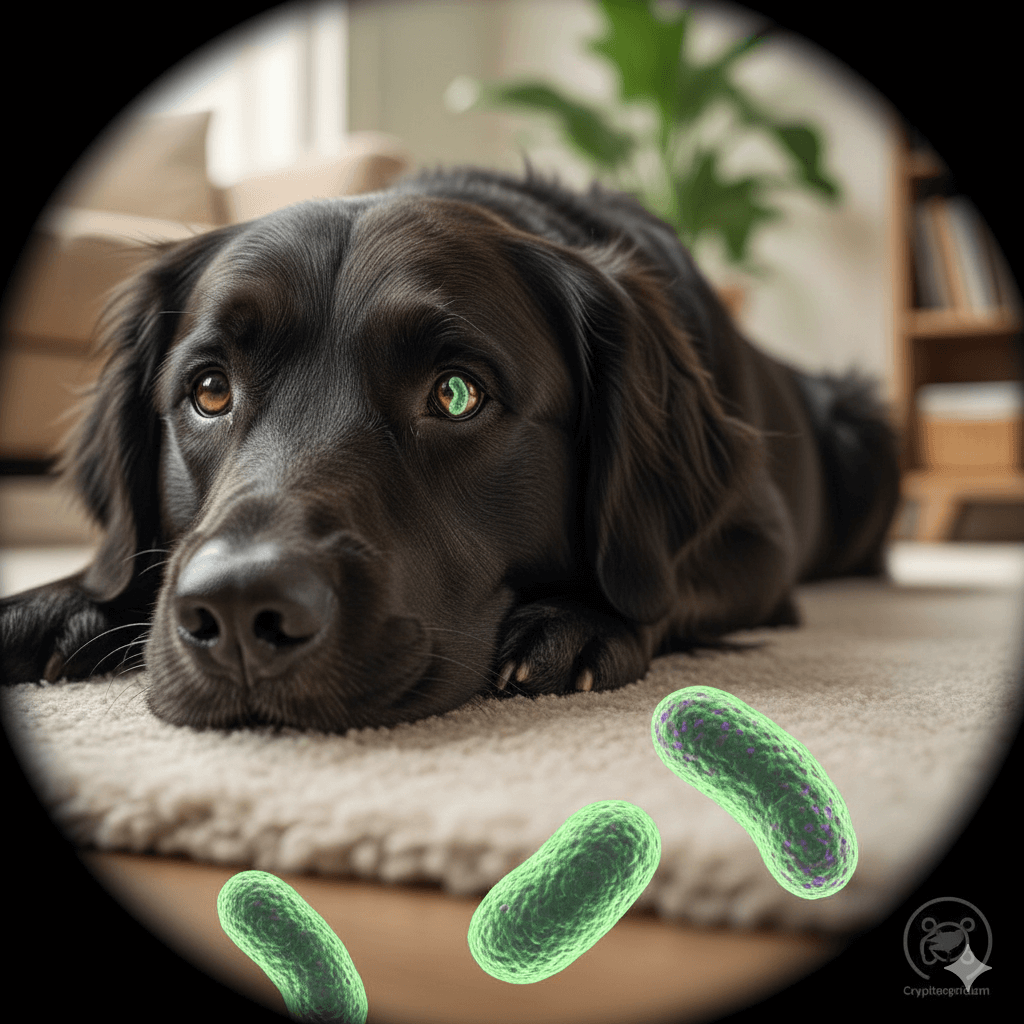Why Does My Dog Snore? Uncovering the Mystery Behind Those Adorable Snores
Dogs bring immeasurable joy to our lives, and their quirky habits often make us smile. One such endearing trait is dog snoring. While some pet parents find it adorable, others may wonder if it’s a sign of an underlying issue. Dog snoring can range from soft, rhythmic breathing sounds to louder, more disruptive noises. But what causes it, and should you be concerned? In this blog post, we’ll explore everything you need to know about why dogs snore, how to address it, and when it might indicate a health concern. So, grab a cup of tea, sit back, and let’s dive into the world of canine snoring.
Common Causes of Dog Snoring
Dog snoring can stem from various factors, some harmless and others requiring attention. Here’s a breakdown of the most common causes:
Sleep Position : Just like humans, dogs can snore based on how they position themselves during sleep. Sleeping on their back with their neck extended can restrict airflow, leading to snoring.
Obesity : Excess weight in dogs can lead to fat deposits around the throat, narrowing the airway and causing snoring. Maintaining a healthy weight is crucial for your dog’s overall well-being.
Nasal Congestion : Allergies, infections, or foreign objects in the nasal passages can cause temporary snoring. If your dog has recently been outdoors or exposed to irritants, this could be the culprit.
Brachycephalic Breeds : Dogs with flat faces, such as Bulldogs, Pugs, and Shih Tzus, are more prone to snoring due to their unique facial structure. Their shorter airways make breathing more challenging.
Sleep Environment : Dust, smoke, or strong odors in your dog’s sleeping area can irritate their respiratory system, leading to snoring.
Understanding these causes can help you identify whether your dog’s snoring is harmless or requires veterinary attention. Always monitor changes in your dog’s snoring patterns to ensure their health remains optimal.
How to Reduce Dog Snoring: Practical Tips
If your dog’s snoring is disrupting their sleep—or yours—there are steps you can take to minimize it. Here’s a list of practical solutions:
Adjust Sleep Position : Encourage your dog to sleep on their side instead of their back. You can use a cozy dog bed that supports natural sleeping positions.
Maintain a Healthy Weight : A balanced diet and regular exercise can help reduce snoring caused by obesity. Consult your vet for a tailored nutrition plan.
Improve Air Quality : Use an air purifier in your home to eliminate allergens, dust, and other irritants. This can significantly improve your dog’s breathing.
Regular Vet Checkups : Schedule routine visits to ensure there are no underlying health issues contributing to your dog’s snoring. Early detection is key to effective treatment.
Humidify the Air : Dry air can irritate your dog’s nasal passages. Adding a humidifier to their sleeping area can keep their airways moist and reduce snoring.
By implementing these strategies, you can create a healthier environment for your furry friend and potentially reduce their snoring. Remember, patience and consistency are essential when addressing this issue.
Check this guide 👉Why Does My Dog Sleep on My Head? Best 7 Behavior Tips!
Check this guide 👉Why Does My Dog Sleep with Eyes Open? Best 7 Expert Tips!
Check this guide 👉Why Does My Dog Sleep Under My Bed? Best 7 Expert Tips!

Tips to Reduce Dog Snoring | When to Seek Veterinary Help |
|---|---|
Adjust your dog’s sleeping position | Persistent or loud snoring without explanation |
Maintain a healthy weight through diet and exercise | Signs of labored breathing or choking sounds |
Use an air purifier to remove allergens | Nasal discharge or frequent sneezing |
Keep your dog’s sleeping area clean and dust-free | Changes in behavior or appetite |
Add a humidifier to combat dry air | Visible distress or discomfort during sleep |
Breeds Prone to Snoring: What You Need to Know
Certain dog breeds are genetically predisposed to snoring due to their physical characteristics. Here’s a closer look at which breeds are more likely to snore and why:
Bulldogs : Their short noses and narrow nostrils make breathing more difficult, often resulting in snoring.
Pugs : Known for their flat faces, Pugs frequently snore due to their compressed airways.
Boxers : Boxers have muscular builds and short muzzles, which can contribute to snoring.
Shih Tzus : These small dogs often experience breathing issues because of their compact facial structure.
Boston Terriers : With their brachycephalic features, Boston Terriers are prone to snoring and other respiratory challenges.
If you own one of these breeds, it’s important to monitor their breathing patterns closely. While snoring is common in these breeds, any sudden changes should prompt a visit to the vet.
Signs Your Dog’s Snoring Could Be a Health Concern
While occasional snoring is usually harmless, certain symptoms may indicate a more serious issue. Here’s what to watch for:
Loud or Frequent Snoring : If your dog suddenly starts snoring loudly or more often than usual, it could signal a problem.
Labored Breathing : Difficulty breathing while awake or during physical activity is a red flag that requires immediate attention.
Nasal Discharge : Clear or discolored discharge from the nose can point to an infection or foreign object.
Choking Sounds : Gagging or choking noises during sleep may suggest an obstruction in the airway.
Behavioral Changes : Lethargy, irritability, or loss of appetite alongside snoring could indicate an underlying health issue.
If you notice any of these signs, consult your veterinarian promptly. Early intervention can prevent complications and ensure your dog’s comfort.
Environmental Factors Contributing to Dog Snoring
Your dog’s environment plays a significant role in their snoring habits. From the cleanliness of their sleeping area to external irritants, several factors can influence whether your furry friend snores. Here’s a closer look at how environmental conditions can impact snoring:
Dust and Allergens : Dust mites, pollen, and other allergens can accumulate in your dog’s bedding or sleeping space, leading to nasal irritation and snoring.
Strong Odors : Perfumes, cleaning products, or cigarette smoke can irritate your dog’s respiratory system, causing them to snore.
Dry Air : Low humidity levels can dry out your dog’s nasal passages, making it harder for them to breathe comfortably during sleep.
Poor Ventilation : A lack of fresh air circulation in your home can trap pollutants, worsening your dog’s breathing issues.
Seasonal Changes : Cold weather or seasonal allergies may temporarily increase your dog’s likelihood of snoring.
By addressing these environmental factors, you can create a healthier and more comfortable space for your dog to rest. Small changes, like regular cleaning or using a humidifier, can make a big difference.
The Role of Sleep Habits in Dog Snoring
A dog’s sleep habits can significantly influence whether they snore or not. Understanding how sleep patterns and routines affect snoring can help you identify potential solutions. Here are some key points to consider:
Irregular Sleep Schedule : Dogs that don’t have a consistent sleep routine may experience disrupted sleep cycles, which can lead to snoring.
Overexertion Before Bed : Intense physical activity right before bedtime can cause heavy breathing and increase the likelihood of snoring.
Uncomfortable Sleeping Surface : A hard or uneven bed can force your dog into awkward positions, restricting airflow and causing snoring.
Lack of Mental Stimulation : Boredom or stress can disrupt your dog’s sleep quality, potentially contributing to snoring.
Excessive Napping : Too much daytime napping can interfere with nighttime sleep, leading to restless slumber and snoring.
By establishing a consistent sleep routine and providing a comfortable sleeping environment, you can help reduce your dog’s snoring and improve their overall rest quality.
Dietary Factors That May Influence Dog Snoring
What your dog eats can also play a role in their snoring habits. Certain foods or dietary habits may contribute to weight gain or inflammation, both of which can exacerbate snoring. Consider the following dietary factors:
High-Calorie Diets : Feeding your dog calorie-dense food without sufficient exercise can lead to obesity, which is a common cause of snoring.
Food Allergies : Some dogs are sensitive to specific ingredients, which can trigger inflammation in their airways and result in snoring.
Late-Night Snacks : Eating too close to bedtime can cause acid reflux, which may lead to snoring in some dogs.
Dehydration : Insufficient water intake can dry out your dog’s throat and nasal passages, making it harder for them to breathe easily.
Low-Quality Food : Poor-quality dog food may contain fillers or additives that irritate your dog’s digestive or respiratory systems.
By paying attention to your dog’s diet and ensuring they receive balanced nutrition, you can address potential dietary causes of snoring. A healthy diet not only reduces snoring but also supports your dog’s overall well-being.
FAQ
Is dog snoring normal?
Yes, occasional snoring is normal for many dogs, especially brachycephalic breeds. However, persistent or loud snoring may require investigation.
Can allergies cause my dog to snore?
Absolutely. Allergies can lead to nasal congestion, which may result in temporary snoring.
Should I be worried if my dog snores while awake?
Snoring while awake is unusual and could indicate a serious respiratory issue. Contact your vet immediately.
How can I stop my dog from snoring?
Adjusting their sleep position, maintaining a healthy weight, and improving air quality are effective ways to reduce snoring.
Do all flat-faced dogs snore?
Not all, but many brachycephalic breeds are prone to snoring due to their shortened airways.
Embracing the Sounds of Love: Understanding Dog Snoring
Dog snoring is more than just a quirky habit—it’s a reflection of your pet’s unique personality and physiology. Whether it’s the gentle hum of a sleeping Pug or the occasional snort of a Labrador, these sounds remind us of the joy our furry companions bring into our lives. By understanding the causes and potential solutions, you can ensure your dog’s snoring remains a harmless quirk rather than a sign of distress. Remember, every snore tells a story, and with proper care, your dog will continue to share their love—and their snores—for years to come.
Understanding Cryptosporidium in Cats: Best 7 Expert Tips! – Spot symptoms, treat safely, and stop parasite spread in your home.
Understanding Cryptosporidium in Dogs: Best 7 Expert Tips! – Learn symptoms, treatment & prevention for this stubborn gut parasite.
Understanding Syringomyelia in Cats: Best 7 Expert Tips! – Recognize signs, manage pain, and support your cat’s neurological health with vet-backed guidance.
Understanding Syringomyelia in Dogs: Best 7 Expert Tips! – Expert insights on symptoms, MRI diagnosis, pain management & quality of life.





